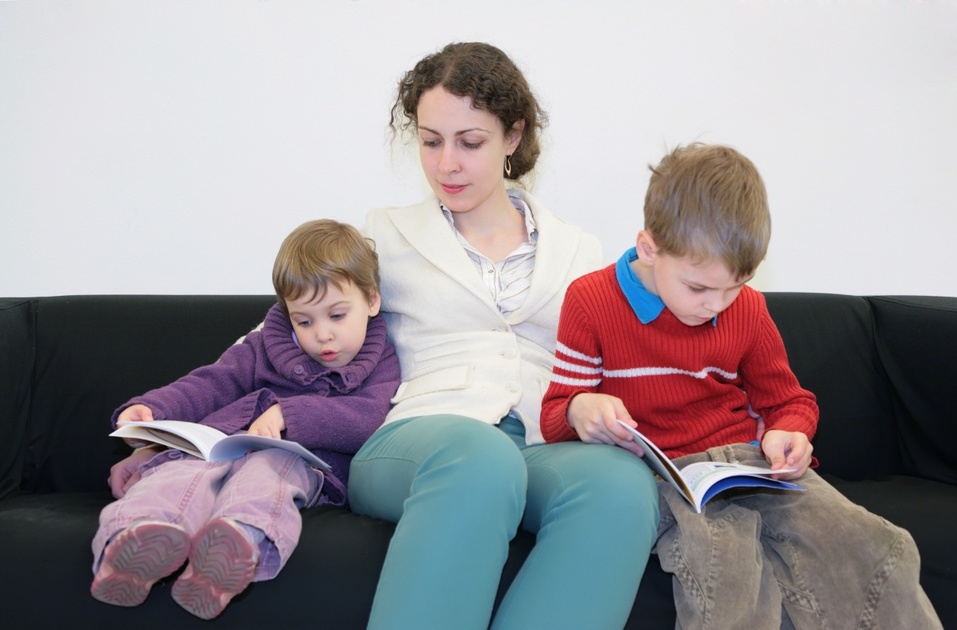
Dear Therapist:
My children (aged 3 to 13) are bh very capable and responsible. For some reason, in my presence they become very needy. I find that I need to absent myself from the room for them to function adequately. For example, I'll serve supper and make sure everyone has what they need and then go do laundry. If I stay in the room, they'll be "Mommy, it’s not fair!" and " Mommy, I don't like this" the whole time. If I am not there, they eat or play nicely and can resolve whatever the issue is. The same with activities. I can set them up with crayons and workbooks and they'll color nicely as long as I am not there. If I am there, they fight over the markers, the chairs, who's kicking who under the table, etc. What brought home the message most is when I speak to their teachers, grandparents, aunts and babysitters, I get glowing reports. Such responsible, caring, capable children, bh . And yet, they fall apart in my presence and become completely incompetent and needy.
It would like to enjoy spending time with my children, but I am finding it to be 'not in their best interests' to be with them. Is there a name for this problem? A solution?
Thank you.
Response:
What you describe is not at all uncommon. People typically maintain different personas depending on the situation and setting. The same guy who is severe and focused with his immediate family may be silly and carefree with his friends. Each persona is at least partially based on unconscious needs, and is often related to other personas. For instance, the severity and focus may be borne of a need for order and control—and the relaxation with friends can be a reaction to the rigidity displayed at home.
Like adults, children often act differently with their parents than with others. Part of the reason for this is probably the sense that they will not be judged by their family, thus allowing them to act in a more “natural” fashion. Among friends and others, when fear of being judged is more prominent, kids may be less likely to “be themselves.” Additionally, when the perception is that there is no significant consequence related to their actions, kids are more likely to act more naturally.
For each of your children, the reason for their behavior may be entirely different than for the others. Within the family setting, each person also tends to react based partially on the others’ actions. The family setting, and individual and group dynamics, can lead to very different relationships than those seen in other scenarios. When the parental factor is added to the equation, individual and group dynamics can change dramatically.
The question is whether your presence and/or responses to your kids’ behavior reinforce this behavior. What is it that prompts them to act in the ways that they do specifically in your presence? Individually, this would be partially based on each child’s needs (like the need for attention, or for fairness from you). In a group sense, the kids may have learned that they don’t need to resolve issues on their own unless a parent is unavailable.
Sometimes, the parents’ need for issues to be resolved stops them from stepping back and allowing the kids to deal with situations on their own. I don’t have enough information to make a specific suggestion, but if you think that this may be the case, remaining in the room but being clear about the fact that you will not intervene may be all that’s necessary to begin changing the dynamic. This may take some time (and may cause you some angst), but the solution may be that simple.
Yehuda Lieberman, LCSW
psychotherapist in private practice
Brooklyn, NY | Far Rockaway, NY
author of Self-Esteem: A Primer
www.ylcsw.com / 718-258-5317
Disclaimer
The Contents Of This Blog, Including Text, Graphics, Images, And Other Material Are For Informational Purposes Only. Nothing Contained In This Blog Is, Or Should Be Considered Or Used As, A Substitute For Professional Medical Or Mental Health Advice, Diagnosis, Or Treatment. Never Disregard Medical Advice From Your Doctor Or Other Qualified Health Care Provider Or Delay Seeking It Because Of Something You Have Read On The Internet, Including On This Blog. We Urge You To Seek The Advice Of Your Physician Or Other Qualified Health Professional With Any Questions You May Have Regarding A Medical Or Mental Health Condition. In Case Of Emergency, Please Call Your Doctor Or 911 Immediately. The Information Contained On Or Provided Through This Blog Is Provided On An "As Is" Basis, Without Any Warranty, Express Or Implied. Any Access To This Blog Is Voluntary And At Your Own Risk.
 Previous
Previous

